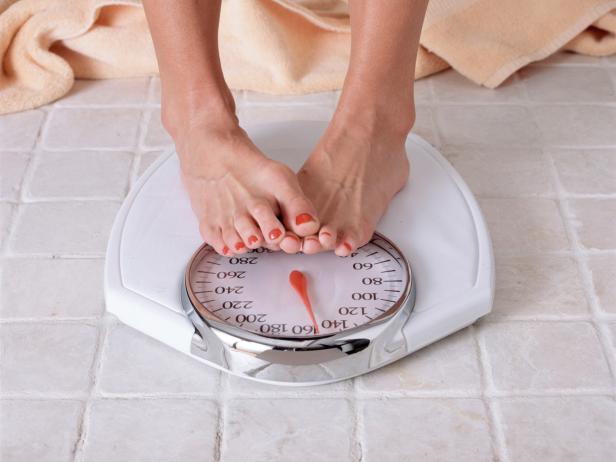Why You Shouldn't Rely on Weight to Determine Your Health
Your overall health is more than just one number.

Reid Veto
For many years, health professionals have debated if you can be healthy and overweight. And it's a debate that we're continuing to have today. While there's no one "right" answer, experts today seem to agree that being "skinny" doesn't automatically make a person healthy and being "overweight" doesn't necessarily make one unhealthy.
Body Mass Index Is Not a True Indication of Health
The body mass index (BMI) is widely used as an indicator for "normal" verses high body weight, but assigning "overweight" or "obese" labels to people perpetuates weight stigma. According to Cara Harbstreet, MS RD LD, "This is one factor that supports the (incorrect) assumption that in order to improve health, one must also lose weight or maintain a thin/lean body." There are many examples of people who are highly active, metabolically healthy and physically fit who live in larger bodies, as well as examples of people in thin or small bodies who are not.
Alissa Rumsey MS, RD, nutrition therapist agrees with Harbstreet and explains that people of all sizes, including those who are in the BMI categories of "overweight" and "obese" can be healthy, just as people of all sizes, including those with "normal" BMI, can get diseases like diabetes, heart disease and high blood pressure. A 2012 study of more than 2,500 people with varying BMIs found that participants who were "obese" and had type 2 diabetes, hypertension, cardiovascular disease and chronic kidney disease lived longer than thinner participants with the same conditions. This is only one study, but it highlights how little we might actually understand relationship between weight and overall health. It is complex and more research is needed.
Weight Loss Alone Isn't a Solution to Poor Health
Rumsey says that there is no guarantee that behaviors taken with the intention of weight loss will result in improved cardiometabolic health. The studies that suggest weight impacts health is only correlational and cannot indicate causation. So what should you change? Rumsey recommends that her clients add behaviors to their lives that promote physical, mental and emotional health like eating a more balanced diet, adopting an exercise regimen and reducing stress.
The Mediterranean diet has been considered the best diet for three years in a row by US News & World Report, and it's easier than others to follow, since it's not an elimination diet. The diet calls for a variety of foods, including dairy, wine and meat, in moderation. A regular exercise routine is also essential for good health. The CDC recommends aiming for 150 minutes of moderate intensity per week — about 30 minutes per weekday. This doesn't mean jumping into CrossFit or an advanced spin class. Walking, biking and running are all OK places to start your fitness journey.
Why Fat-Shaming Doesn't Work
Studies have shown that weight stigma can have a negative impact on our health. A 2014 study published in Obesity examined the association between perceived weight discrimination and changes in weight, waist circumference and weight status. Close to 3,000 men and women 50 years or older participated in the study where researchers found that weight discrimination did not encourage folks to lose weight. In fact, weight discrimination was found to promote weight gain and even the onset of obesity.
You can now find social media accounts that offer fat positivity and body acceptance in the Health at Every Size (HAES) movements. "Health at Every Size is not about glamorizing large bodies, it is about humanizing them," says Rumsey. Until recently there has been a gap in high-profile or visible accounts on social media that showcase a more diverse range of body shapes and sizes. "Bodies of all shapes and sizes deserve respect and ethical care," Rumsey explains.
"Assuming a thin person is healthy is just as inaccurate as assuming a fat person is unhealthy," explains Harbstreet. "We need more awareness that health and weight are not as linked as we’ve been conditioned to believe, and part of that starts with advocating for less body objectification and judgment along the entire size spectrum."
Bottom Line
There is more to your health that your outward appearance. To determine if someone is really healthy one must look at other factors such as diet, physical activity, regular health care screenings or preventative care, and managing stress and mental health concerns. Our society has created a negative stigma on body size and it’s time to change that view.
Related Links:


































